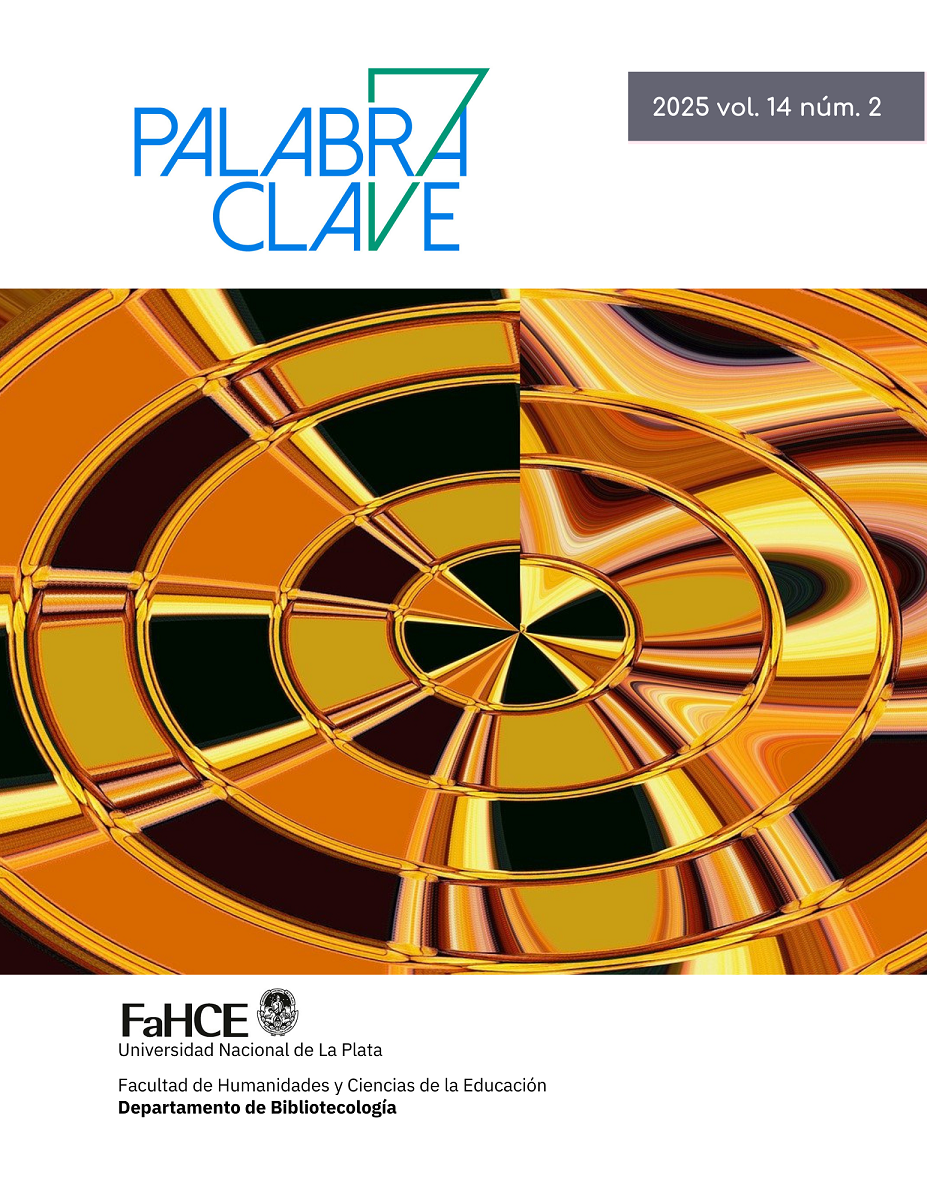Media and information literacy as a critical tool in library and information science: study of disinformation and post-truth in the Black Mirror series
Main Article Content
Abstract
The association between the disinformation industry and the social effects related to platformization - in addition to other trending phenomena, such as post-truth - results in an obstacle to people's informational autonomy. In this aspect, the study aims to identify elements associated with the current informational context and its relationship with Media and Information Literacy (MIL) represented in the film series Black Mirror. The elements of investigation are the phenomena of disinformation and post-truth and their underlying motivations and interests, and their relationships with the MIL dimensions. The research is classified as bibliographic and documentary, as the data comes from scientific literature, and excerpts from episodes of a film series are investigated. To analyze the collected data, we opted for content analysis of specific scenes from specific episodes of the series, which were selected based on their adherence to the theme of the investigated proposal, whose criteria are derived from the MIL dimensions idealized by Ferrés and Piscitelli (2015). The study made it possible to improve understanding of how information and communication technologies can shape the perception of reality, influence emotions, opinions and behaviors. It also reveals how false and distorted information can be used to manipulate public opinion, compromise democracy and individual privacy. Finally, it shows that MIL skills are essential for individuals in Latin America and the Caribbean in the contemporary era.
Downloads
Article Details

This work is licensed under a Creative Commons Attribution-NonCommercial-ShareAlike 4.0 International License.
References
Bardin, L. (1977). Análise de conteúdo. Edições 70.
Barros, J. D. (2007). Cinema e história: as funções do cinema como agente, fonte e representação da história. Ler história, 52(1), 127-159. https://journals.openedition.org/lerhistoria/2547 DOI: https://doi.org/10.4000/lerhistoria.2547
Black Mirror (2024). Em Wikipedia: a enciclopédia livre. Wikimedia Fundation. https://pt.wikipedia.org/wiki/Black_Mirror
Cesarino, L. (2022). O mundo do avesso: verdade e política na era digital. Ubu.
Cingüela Sola, J. & Martínez-Lucena, J. (2014). El imaginario social de la democracia en Black Mirror. Revista latina de sociologia, 4(1), 90-109. https://ruc.udc.es/dspace/bitstream/handle/2183/14488/RLS_2014_4_art_7.pdf?sequence=1&isAllowed=y DOI: https://doi.org/10.17979/relaso.2014.4.1.1223
Cultura digital (2018). Em D. Mill, Dicionário crítico de educação e tecnologias e de educação à distância. Editora Papirus.
D’Ancona, M. (2018). Pós-verdade: a nova guerra contra os fatos em tempos de fake news. Faro Editorial.
Elnahla, N. (2019). BlackMirror: Bandersnatch and How Netflix Manipulates us, the New Gods. Consumption Markets & Culture, 2019. https://www.tandfonline.com/doi/full/10.1080/10253866.2019.1653288 DOI: https://doi.org/10.1080/10253866.2019.1653288
Ferrés, J. & Piscitelli, A. (2015). Competência midiática: proposta articulada de dimensões e indicadores. Lumina, 9(1), 1-16. https://periodicos.ufjf.br/index.php/lumina/article/view/21183/11521
Gandasegui Correo, V. D. (2014). Black Mirror: el reflejo oscuro de la sociedad de la información. Revista Teknokultura, 11(3), 583-606. https://dialnet.unirioja.es/servlet/articulo?codigo=4903683
La Rue, F. (2016). Foreword. Em J. Singh, P. Kerr & E. Hamburguer (Orgs.), Media and Information Literacy: Reinforcing Human Rights, Countering Radicalization and Extremism (pp. 7-8). UNESCO. https://unesdoc.unesco.org/ark:/48223/pf0000246371
Mintz, A. G. (2019). Midiatização e plataformização: aproximações. Novos olhares, 8(8), 98-109. https://repositorio.ufmg.br/bitstream/1843/37052/2/Midiatiza%C3%A7%C3%A3o%20e%20plataformiza%C3%A7%C3%A3o.pdf DOI: https://doi.org/10.11606/issn.2238-7714.no.2019.150347
Moeller, S., Joseph, A., Lau, J. & Carbo, T. (2011). Towards Media and Information Literacy Indicators. UNESCO.
Oxford Languages (2016). Word of the Year 2016. https://languages.oup.com/word-of-the-year/2016
Poell, T., Nieborg, D. & Van Dijck, J. (2019). Platformisation. Internet Policy Review: Journal on Internet Regulation, 8(4), 1-13. https://policyreview.info/concepts/platformisation DOI: https://doi.org/10.14763/2019.4.1425
Pós-verdade (2024). Em Wikipedia: a enciclopédia livre. Wikimedia Fundation. https://pt.wikipedia.org/wiki/P%C3%B3s-verdade
Retis, J. (2021). Understanding Latin American Diasporic Transnationalism and the Media in the Post-Digital Era: The Interstices of Invisibility. Questions de Communication, 39, 357-380. https://journals.openedition.org/questionsdecommunication/25854 DOI: https://doi.org/10.4000/questionsdecommunication.25854
Ripoll, L. (2019). Por um advocacy contra a desinformação: entendendo a disseminação das fake news e reconfigurando o papel do profissional da informação. [poster]. Poster apresentado no XXVIIICongresso Brasileiro de Biblioteconomia e Documentação - CBBD 2019. Vitória, Brasil. http://repositorio.febab.org.br/items/show/3346
Singh, J., Kerr, P. & Hamburguer, E. (Orgs.) (2016). Media and Information Literacy: Reinforcing Human Rights, Countering Radicalization and Extremism. UNESCO. https://unesdoc.unesco.org/ark:/48223/pf0000246371
UNESCO (2012). The Moscow Declaration on Media and Information Literacy. UNESCO. https://www.ifla.org/wp-content/uploads/2019/05/assets/information-literacy/publications/moscow-declaration-on-mil-en.pdf
UNESCO (2016). Marco de avaliação global da alfabetização midiática e informacional: disposição e competências do país: resumo executivo. UNESCO.
Van Dijck, J., Poell, T. & De Waal, M. (2018). The Platform Society: Public Values in a Connective World. Oxford University Press. DOI: https://doi.org/10.1093/oso/9780190889760.001.0001
